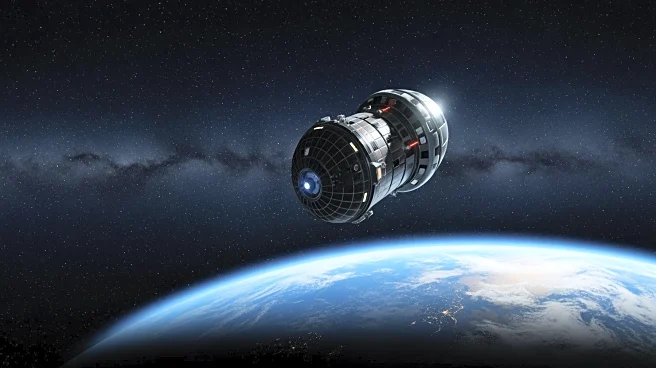What's Happening?
NASA has announced plans to deorbit the International Space Station (ISS) in 2030, marking the end of its 25-year mission. The ISS will be directed to Point Nemo, a remote area in the Pacific Ocean known
as the 'spacecraft cemetery.' This decision comes as the station reaches its operational limits, having served as a hub for international collaboration and scientific research since 1998. The controlled descent aims to ensure a safe and dignified end to the ISS's service.
Why It's Important?
The planned deorbiting of the ISS signifies a major transition in human space exploration. The ISS has been a symbol of international cooperation, hosting astronauts from various countries and facilitating groundbreaking research. Its retirement will pave the way for new space initiatives, including commercial space stations and lunar missions. The knowledge gained from the ISS will continue to influence future space endeavors, highlighting the importance of sustainable and responsible space operations.
What's Next?
As NASA prepares for the ISS's deorbiting, efforts will focus on ensuring a safe and controlled descent. The agency will also work with international partners to transition research activities to new platforms. The end of the ISS era will likely accelerate the development of commercial space stations and other orbital habitats, as well as missions to the Moon and Mars. These initiatives will build on the legacy of the ISS, advancing human presence in space.









